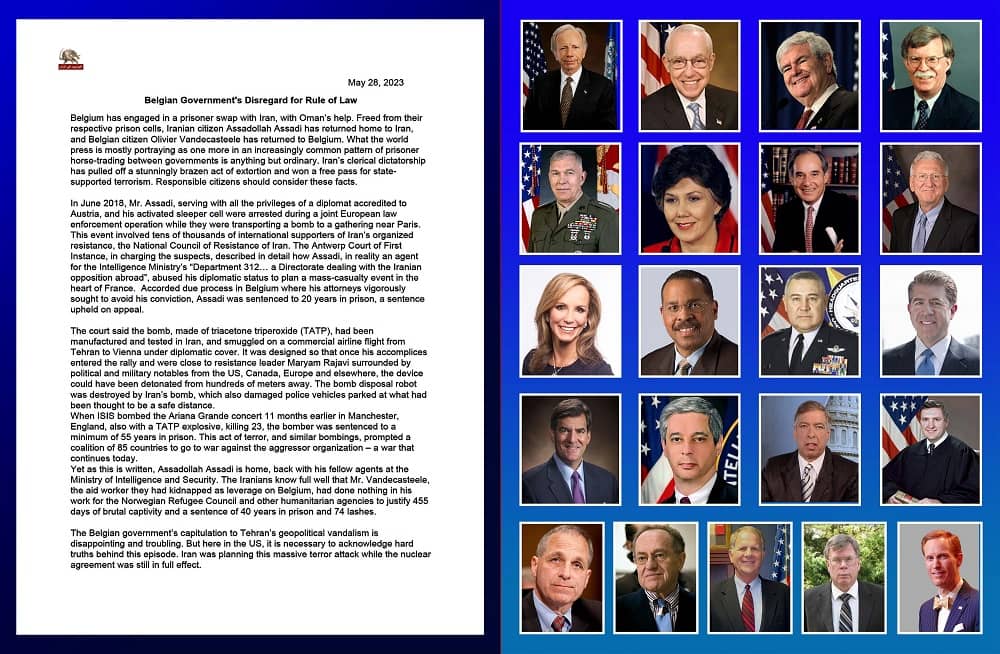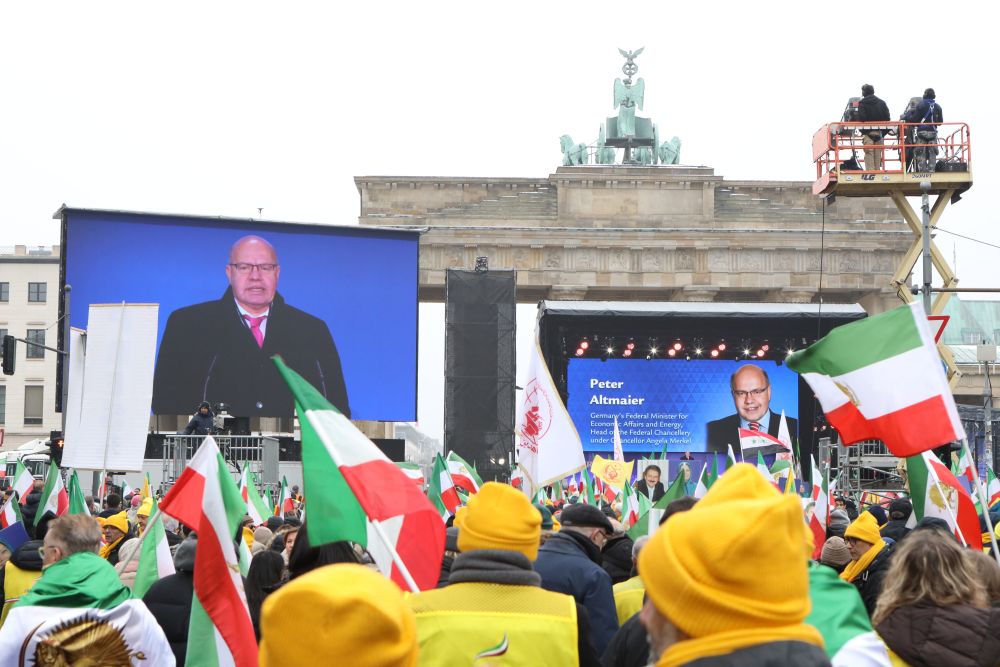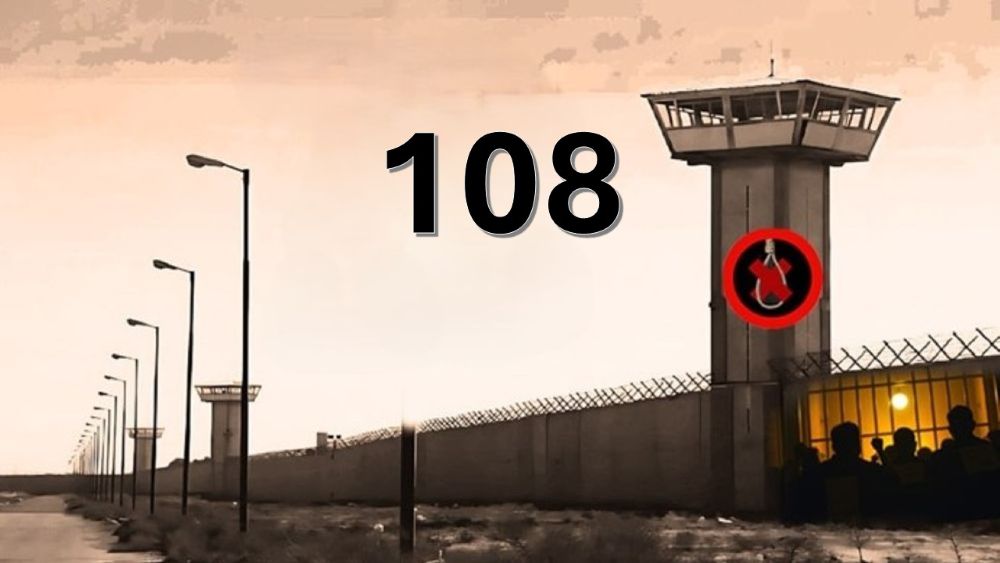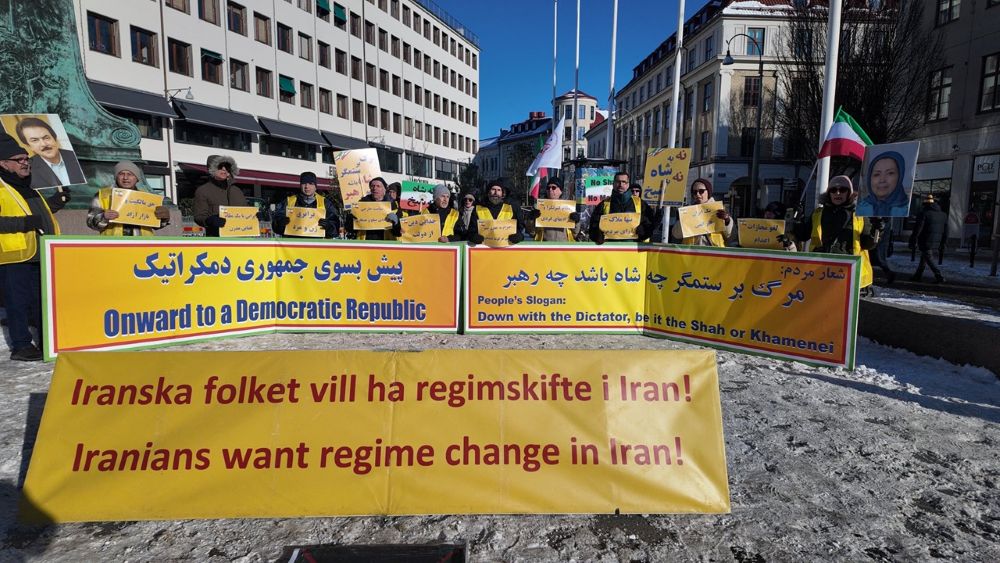
A group of distinguished American figures, including diplomats, former government officials, and esteemed individuals, has united with a common objective: addressing a pressing global concern.
On May 31, they unveiled a letter that sheds light on the Iranian regime’s involvement in state-supported terrorism, specifically focusing on the recent controversial prisoner swap that resulted in the release of Iran’s regime imprisoned diplomat-terrorist, Assadollah Assadi.
This letter serves as a rallying call to take action and demands a serious policy dialogue to address Iran’s malignant behavior.
“What the world press is mostly portraying as one more in an increasingly common pattern of prisoner horse-trading between governments is anything but ordinary. Iran’s clerical dictatorship has pulled off a stunningly brazen act of extortion and won a free pass for state-supported terrorism. Responsible citizens should consider these facts,” the letter writes.
The letter, signed by prominent figures, exposes the details surrounding Tehran’s role in planning a mass-casualty event on European soil. It highlights the case of Assadi, who was arrested in June 2018 along with his activated sleeper cell while transporting a bomb to a gathering near Paris. The event was attended by thousands of international supporters of Iran’s organized resistance, the National Council of Resistance of Iran.
Assadi, who enjoyed diplomatic privileges in Austria, was revealed to be an agent for Iran’s Intelligence Ministry’s “Department 312.” The letter emphasizes how he exploited his diplomatic status to plan a heinous act of terrorism, endangering the lives of countless individuals. The Antwerp Court of First Instance, after providing due process, sentenced Assadi to 20 years in prison, a sentence upheld on appeal.
The letter further reveals that the bomb used in the plot was manufactured and tested in Iran. It was smuggled from Tehran to Vienna under diplomatic cover, demonstrating the extent of Iran’s covert aggression. The authors draw attention to the fact that when a similar bomb was used in the Manchester bombing in 2017, resulting in the loss of 23 lives, the perpetrator received a minimum prison sentence of 55 years. They conclude that this stark contrast highlights the gravity of Tehran’s actions and the need for a comprehensive response.
The recent prisoner swap between Belgium and Iran’s clerical regime, facilitated with Oman’s assistance, has sparked concerns among the letter’s signatories. The authors argue that the swap should not be seen as a routine exchange of prisoners but rather as an act of extortion by Iran’s clerical dictatorship. While Belgian citizen Olivier Vandecasteele was released, the authors emphasize that the Iranian regime had unjustly detained him as leverage on Belgium, subjecting him to brutal captivity and an unjust sentence of 40 years in prison and 74 lashes.
” The Belgian government’s capitulation to Tehran’s geopolitical vandalism is disappointing and troubling. But here in the US, it is necessary to acknowledge the hard truths behind this episode. Iran was planning this massive terror attack while the nuclear agreement was still in full effect,” the letter reads.
The authors express disappointment and concern over the Belgian government’s capitulation to Tehran’s geopolitical vandalism. However, they call for a broader acknowledgment of the persistent malignant behavior of Iran’s ruling clerics. They urge Western governments to address Iran’s state-supported terrorism, its nuclear program, and its destabilizing role in the Middle East. The letter concludes with a pledge of full support to any serious policy dialogue to combat Iran’s ongoing aggression.
“Iranian covert aggression has lately been noted in the UK, Denmark, Belgium, France, Germany, Austria, and Albania. Western governments, even while focusing on the Iranian people’s ongoing revolt against the regime, Iran’s unconstrained nuclear program, and its destabilizing role in the Middle East, must now convene a serious policy dialogue about the persistently malignant behavior of the ruling clerics in Tehran, now in its 45th year. To such an effort, we pledge our full support,” the letter and its signatories write.
This letter is a powerful indictment of Iran’s actions, highlighting the urgent need for international attention and unified efforts to counter state-supported terrorism.



